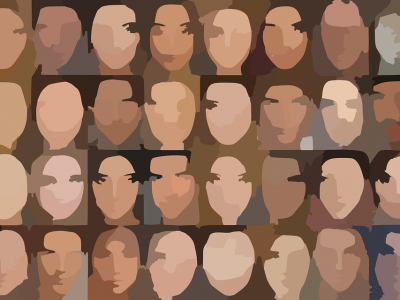This report was researched, written, and edited by Corey Abramson, Weiping Li, Renata Avila, Chan Myae Khine, Sarah Myers, and Rebecca MacKinnon.
Back in October, we reported that the Congress of the Philippines passed a controversial law named the Cybercrime Prevention Act of 2012. The Act was initially set to become effective on October 3 until its implementation was suspended by the Philippine Supreme Court. Now, thanks to the collective work of lawyers, bloggers, technology experts, and human rights advocates, Philippine Senator Miriam Defensor-Santiago has proposed a new bill “the Magna Carta for Philippine Internet Freedom (MCPIF)” to replace the Cybercrime Prevention Act.
Senator Santiago claims the new bill will protect Internet freedom and free speech online, addressing problems in the Cybercrime Prevention Act such as vague definitions and the criminalization of anonymous online criticism. Instead, MCPIF treats libel as civil liability rather than a criminal act, while also guaranteeing the rights and protection of Internet users in the Philippines. The bill also requires government agencies to obtain a court order before taking down websites or blocking online content. If passed, MCPIF will be the first law to be created by crowdsourcing in the Philippines.
Internet Governance
The two-week World Conference on International Telecommunications (WCIT) is scheduled to wrap up at the end of this week. At the end of last week, the United States and Canada submitted a proposal to limit the International Telecommunication Union (ITU)’s rules to only telecommunication services, as is presently the case, thus preventing the ITU from expanding its rule-making powers to Internet resources and services. However, the proposal did not win approval from a committee consisting of representatives from six regional bodies, and had to be brought back to the table for discussion in the main policy-making body.
On the other hand, some other countries pushed for the ITU to assert greater authority over the Internet. On December 7, Russia, the UAE, China, Saudi Arabia, Algeria, and Sudan introduced a proposal demanding that “member states have the right to manage all naming, numbering, addressing and identification resources used for international telecommunications/ICT services within their territories.” Critics said this proposal (a leaked draft of which was posted on WCITLeaks here) would undermine the role of Internet Corporation for Assigned Names and Numbers (ICANN) and the Internet Assigned Numbers Authority (IANA) which currently manage these resources. The proposal also maintained that nations should have the right to control elements of Internet infrastructure within their borders. By December 11 this proposal had been taken off the table but as of this writing, negotiations are ongoing and it remains unclear what regulations will or will not be approved in Dubai.
In other news related to WCIT, in late November the ITU quietly approved the standards for “Deep Packet Inspection” (DPI), a technique for looking into content of communications on the Internet that is increasingly used for network security but is also used by repressive regimes to identify and punish dissenters. If they are mandated and implemented, these standards pose a threat to online dissent and investigative journalism.
Meanwhile, a video by Global Partners and the Open Technology Institute argues that whatever happens this week, battles over Internet governance will continue until a broader global consensus is reached about what kind of system will serve the interests and protect the rights of all the world's Internet users.
Cybersecurity
Hacker groups forced the WCIT website to go offline for about two hours last Wednesday, leaving delegates unable to access material related to the meeting. The Internet Society condemned the attacks as counterproductive and urged positive action around the meeting.
Richard Stallman, president of the Free Software Foundation, accused the open source operating platform Ubuntu of being “spyware” because a search of the Dash (used for searching the computer's desktop) in Ubuntu 12.10 provides not only desktop results, but also Amazon shopping results. If a user buys something from Amazon as a result, Ubuntu maker Canonical receives a payment.
Censorship
A court in Kazakhstan has banned the independent news outlet Stan TV, accusing it of violating laws on extremism.
Surveillance
A Reuters investigation revealed how foreign firms, including Chinese telecommunication equipment provider Huawei, have pursued business opportunities in Iran to assist the country to establish its Internet filtering mechanism and surveil Internet and phone communications.
Sovereigns of Cyberspace
On Monday, Facebook closed a week-long voting period on its new privacy policy. While 589,141 users voted against the policy change and only 79,731 voted in favor, voter participation fell very short of the company's required threshold of 30% of all active registered users (Facebook now has over 1 billion users, so 30% is 300 million). Since the threshold was not reached, the new policy will be adopted – which as we reported two weeks ago – abolishes the voting process entirely.
Privacy
In other Facebook-related news, a group of Austrian law students are planning to challenge the social network's vague privacy policies in an Irish Court, where Facebook is incorporated, for failure to adapt to European data protection laws. The students have created a web page to solicit donations for the lawsuit.
Lebanese Minister of Telecommunications Nicolas Sehnaoui called on netizens to mobilize in the name of Internet privacy under a controversial #ProtectPrivacy campaign. Sehnaoui publicly refused to turn over personal information of Lebanese citizens to the Internal Security Forces (ISF), receiving some praise but also criticism and questioning of his motives.
Meanwhile, European data protection officials are discussing plans to censure Google if the company’s privacy policy can’t meet Europe’s rules on data protection.
The Wall Street Journal has created a chart detailing personal information major websites share with other companies.
National Policy
Women in Bihar, India were banned from using mobile phones by a village council in Bihar, India, in a growing trend on cellphone bans for girls so they would not be “spoiled” by excessive use of the devices. Girls caught with a mobile phone would be fined 10,000 rupees (US$180).
Copyright
Representatives of public interest groups were allowed a total of 15 minutes to speak at the most recent meeting on the Trans Pacific Partnership Treaty held in Auckland, New Zealand.
The big four record labels — EMI, Sony, Universal, and Warner Music have gone to the High Court in Ireland, asking for a court order to demand four Irish Internet service providers block the file-sharing website Pirate Bay. Another ISP, Eircom was forced to block Pirate Bay in a 2009 High Court order, also a result of the music labels’ legal action.
Sovereigns of Cyberspace
Activists in China believe Chinese security forces are using the application WeChat, developed by the Chinese Internet and phone value-added services company Tencent, to monitor in real time the movements of its 200 million subscribers. We also reported in our previous Netizen Report that the Chinese dissident Hu Jia believed the Public Security Bureau monitored his communications through WeChat.
Netizen Activism
The Twitter user @MarvinSchult lodged a complaint in Costa Rica’s Constitutional Court after the Twitter account belonging to the Presidency of Costa Rica – @presidenciacr – temporarily blocked his account after a comment that the user posted, criticizing some of President Laura Chinchilla’s actions. The Constitutional Court ruled that the action taken by the Government violated the citizen’s freedom of speech and the President’s department will have to pay for damages caused to Schult.
Publications and Studies
- Mary Meeker: Internet Trends.
- Jan Schaffer: Networked Journalism: What Works.
- Tech Tools for Activism: Technology Tools for Activists Handbook.
Subscribe to the Netizen Report by email
For upcoming events related to the future of citizen rights in the digital age, see the Global Voices Events Calendar.





5 comments
The Public Domain Reports…
[…] case, thus preventing the ITU from expanding its rule-making powers to Internet […]…